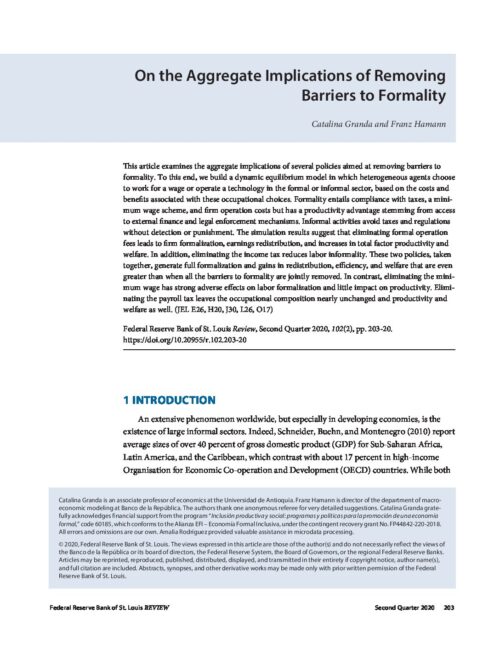This article examines the aggregate implications of several policies aimed at removing barriers to formality. To this end, we build a dynamic equilibrium model in which heterogeneous agents choose to work for a wage or operate a technology in the formal or informal sector, based on the costs and benefits associated with these occupational choices. Formality entails compliance with taxes, a minimum wage scheme, and firm operation costs but has a productivity advantage stemming from access to external finance and legal enforcement mechanisms. Informal activities avoid taxes and regulations without detection or punishment. The simulation results suggest that eliminating formal operation fees leads to firm formalization, earnings redistribution, and increases in total factor productivity and welfare. In addition, eliminating the income tax reduces labor informality. These two policies, taken together, generate full formalization and gains in redistribution, efficiency, and welfare that are even greater than when all the barriers to formality are jointly removed. In contrast, eliminating the minimum wage has strong adverse effects on labor formalization and little impact on productivity. Eliminating the payroll tax leaves the occupational composition nearly unchanged and productivity and welfare as well.
(JEL E26, H20, J30, L26, O17)
Autores:
- Catalina Granda
- Franz Hamann
Palabras clave:
- Barriers to formality
- Informality
Categorías:
- Proyecto 5
- Publicación
